Building A Sustainable, Community-Driven Future for Hygiene with Chhota Bheem | #BeatGermsWithBheem
Wednesday, June 26, 2019
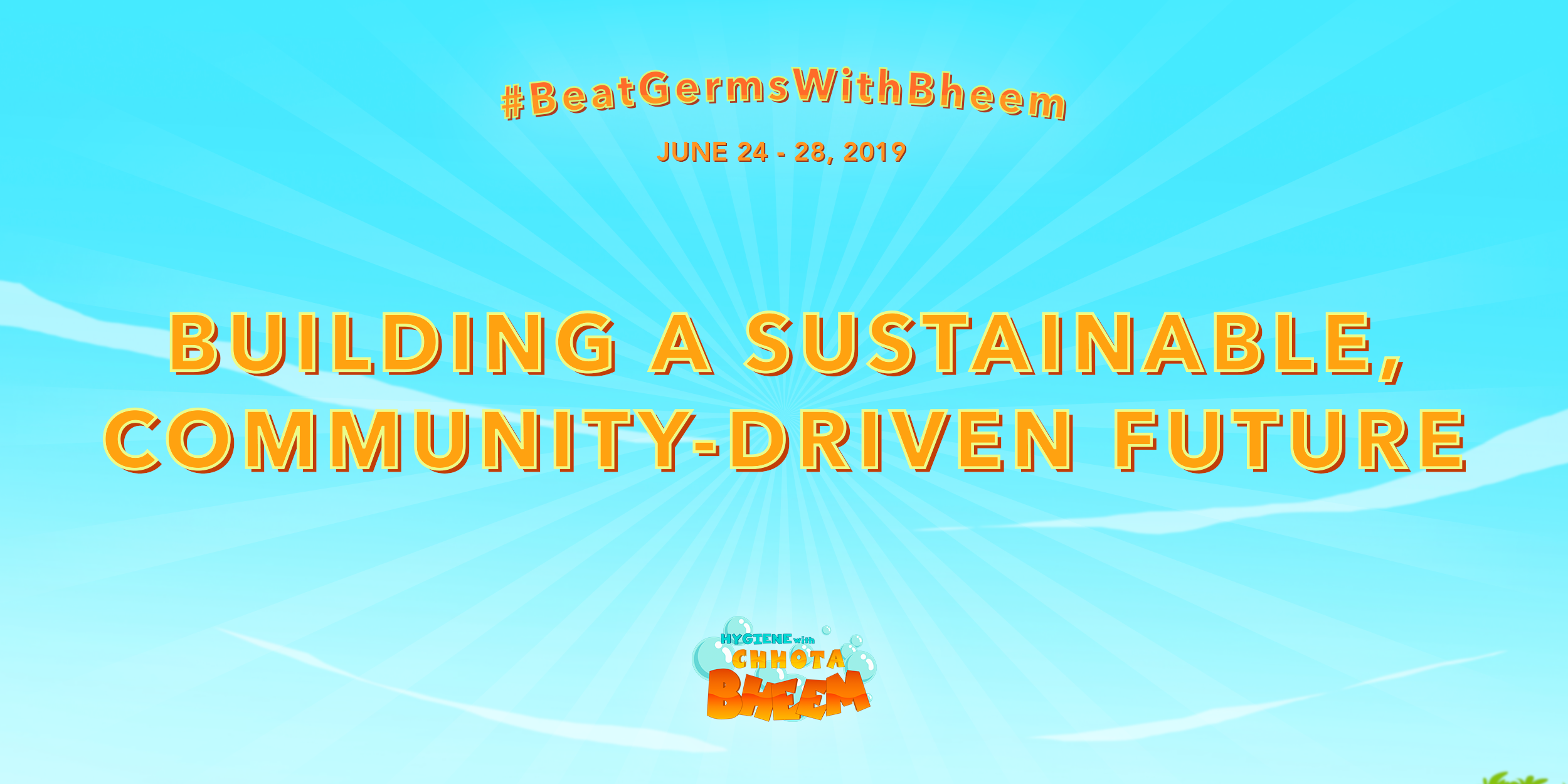
The Engagement Lab is a place for unorthodox, creative projects that engage with the most pressing problems in contemporary democracy.
From rebuilding trust in the news, to community oversight of smart city development, to empowering communities to advocate for their health and well being, we’ve worked with a diverse array of partners to co-design exciting projects.
But how we finish these projects is just as important to us as how we start them.
Typically, we do our work through individual grants. We design the research process, deliverables, and success metrics with the knowledge that our funding and direct involvement for the project won’t last forever.
We’re comfortably able to achieve goals like starting dialogues and engaging community members around issues at one-time events or campaigns within our implementation window. And afterwards, we can collect and interpret the results of our research and efforts, share them widely, and then move onto other important projects.
But we strive to do more than simply letting the program end when our funding period ends. The goal here is to inculcate lasting changes in behavior and mindset around a an issue of critical importance — in this case, people’s health.
Doing this right requires time, care, and our end result needs to become something communities feel a real investment in. Our goal should be about more than immediate outcomes like collecting data or starting a conversation, but building a valuable resource that community members can use long after our direct involvement in the project is over.

Over the last two years, with the generous support of the UBS Optimus Foundation, we’ve made incredible strides on Hygiene with Chhota Bheem.
We’ve been able to research, design, and start to grow an amazing health and hygiene learning program with a proven impact on handwashing with soap and hygienic toilet use in the southern Indian state of Tamil Nadu.
In the wake of the Government of India’s Swachh Bharat Mission to eradicate open defecation by 2019, ensuring the sustainability of projects like Hygiene with Chhota Bheem is imperative.
> > How we finish these projects is just as important to us as how we start them.
In 2018, a study conducted in Dharmapuri district of Tamil Nadu found that more than 50% of the respondents practiced open defecation despite having a toilet at home. They cited inadequate construction of toilets, but additionally, personal beliefs and lack of hygiene awareness as key reasons for not using toilets. Conversely, exposure to programs promoting safe sanitation practices was found to be associated with toilet use.
In building the future of Hygiene with Chhota Bheem, we knew that simply creating an effective resource was not enough. We needed to provide a framework that equips members of the community — from educators to health workers to children themselves — with the skills to confidently advocate good hygiene behavior to others.
In the past months, this has been one of our foremost priorities in working on this project.
We’re proud of the steps we’ve taken thus far to embed Hygiene with Chhota Bheem meaningfully in communities in Tamil Nadu and beyond.
Recognizing Children as Change Agents
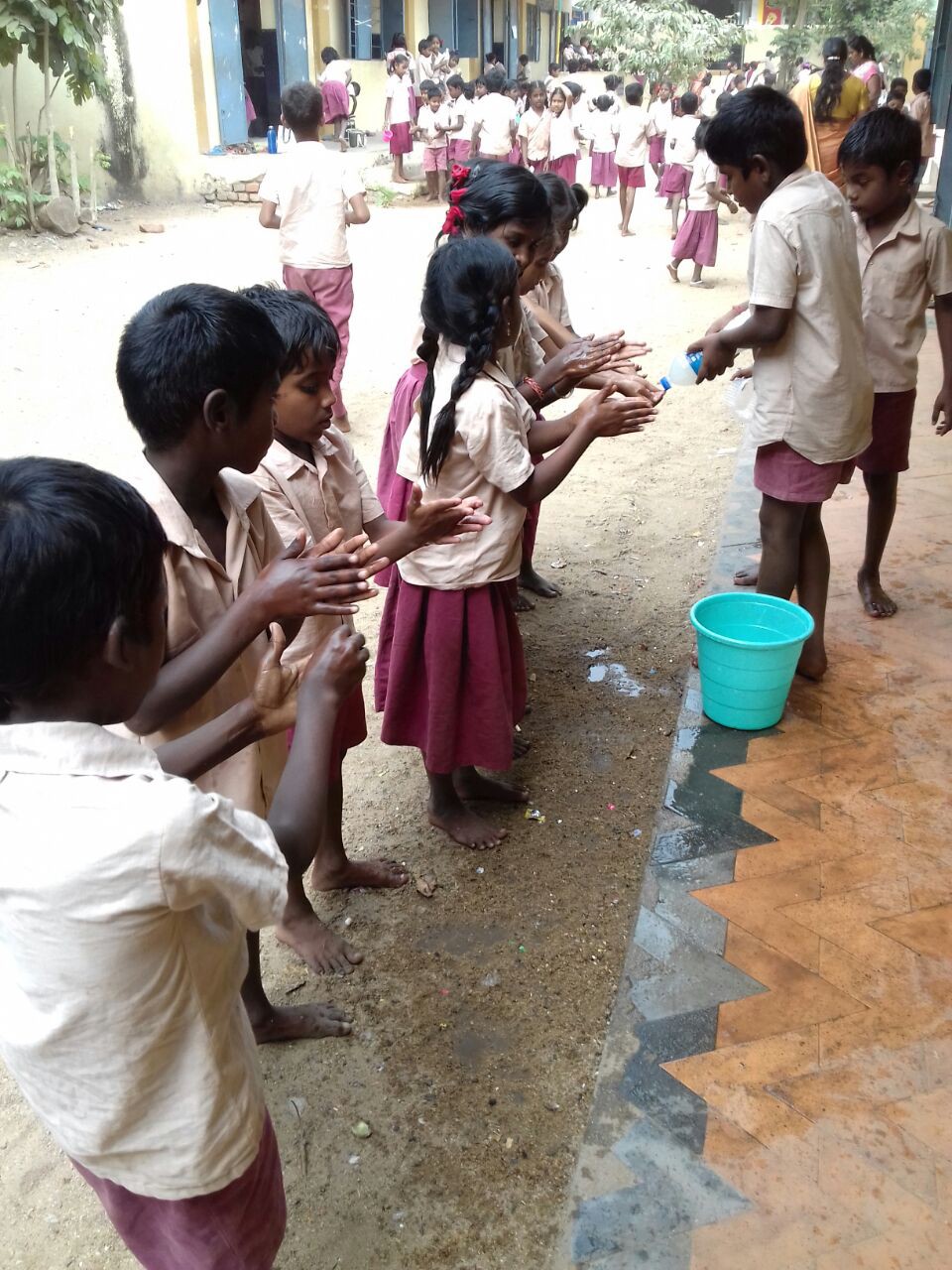
Many hygiene awareness campaigns in India are passive, and use media that reaches mostly an older audience. From the very start of this project in 2017, we knew we wanted to focus on making an impact on children as a primary focus.
Children are citizens and future decision-makers, and what they learn in their early years is very likely to be applied throughout the rest of their lives. They play an important role in the home, helping to taking care of younger siblings, and depending on the culture, sometimes play an influential role in questioning existing practices in the household.
By bringing children into the development process as active participants, we can enable them to become change agents within their families, and a key advocate for broader community adoption of hygiene behaviors. Being tomorrow’s decision makers and parents, children are also likely to help ensure the sustainability of a program’s impact.
Involving Communities at Every Development Stage
Co-design is absolutely central to the work we do. To make sure that the program we end up developing would meet the needs of community members, we brought in a variety of partners in Tamil Nadu from the project’s very beginning.
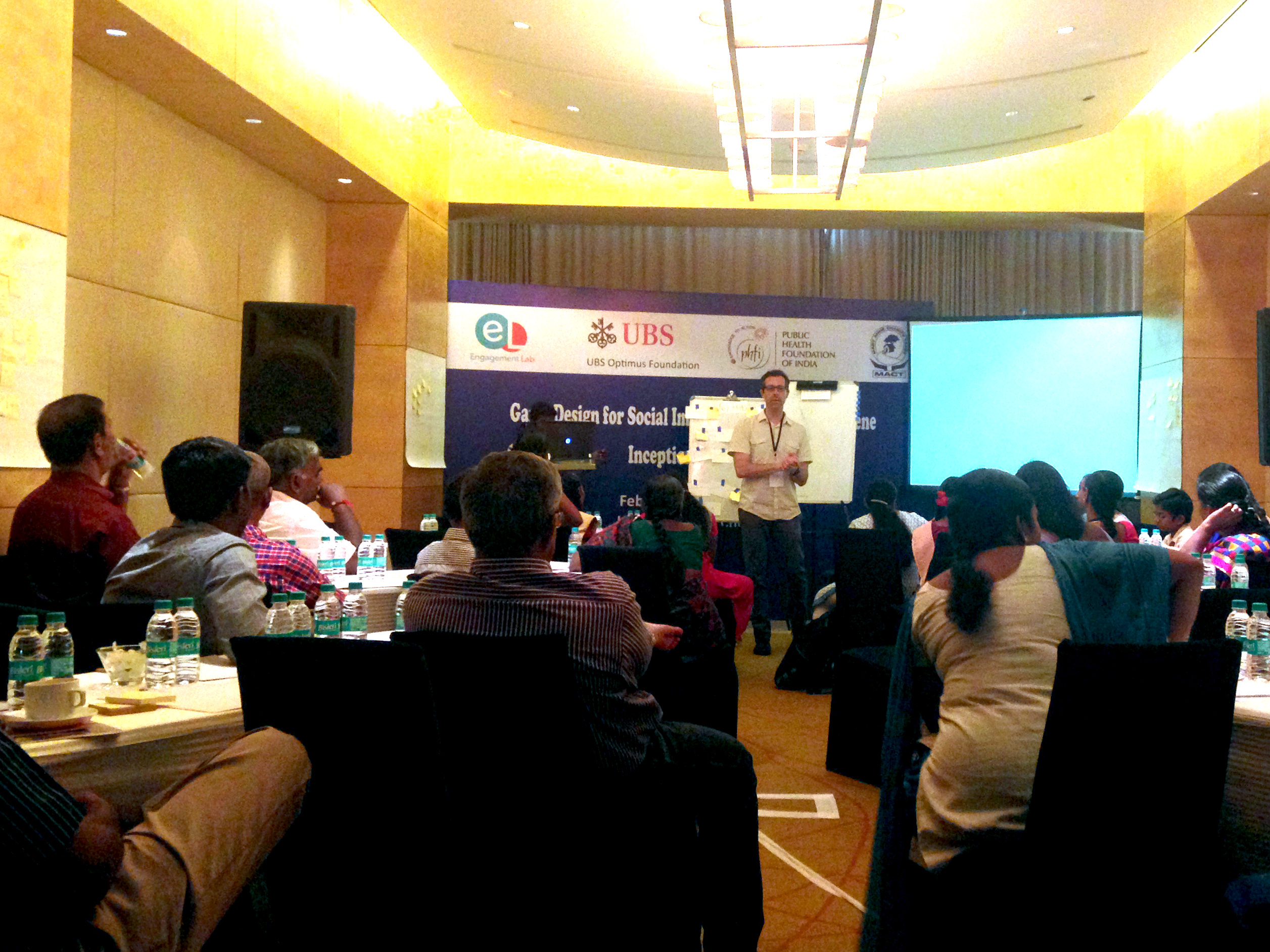
During the project’s first year, we organized an Inception Workshop with 42 participants from state government, local schools, academia, and NGOs implementing similar programs in Tamil Nadu. We formed a Working Group of interested stakeholders to inform game design, and working with several schools and community groups in Tamil Nadu, we conducted 35 playtests during Year 1.
Through our pilot study, which found positive outcomes in knowledge, attitudes, and advocacy about toilet use and handwashing, we also received useful feedback from the participating teachers and students on the content and delivery methods.
There was a resounding call to make the curriculum less structured and more modular, and we did just that. We also observed some educators innovating ways of motivating children to change their habits, which we would include in our revisions and are now reflected in the current version of the curriculum.
Making the Implementation Process Community-Centered
Rooted in constructivist learning theory, the* Hygiene with Chhota Bheem* learning resources are modular and flexible. They allow each learner the opportunity to customize how they use the content, depending on prior knowledge, personal strengths and interests, and what they consider most useful for their community.
Being a transmedia story and play-based learning experience, children engage with and immerse themselves in the story (and the values of health and hygiene it fosters) through interactive videos, a story book, a series of games and activities, and even a digital game that can be played on a smartphone or tablet. Making the resources available in multiple languages is another way in which the experience makes itself relevant for children from varied cultures.
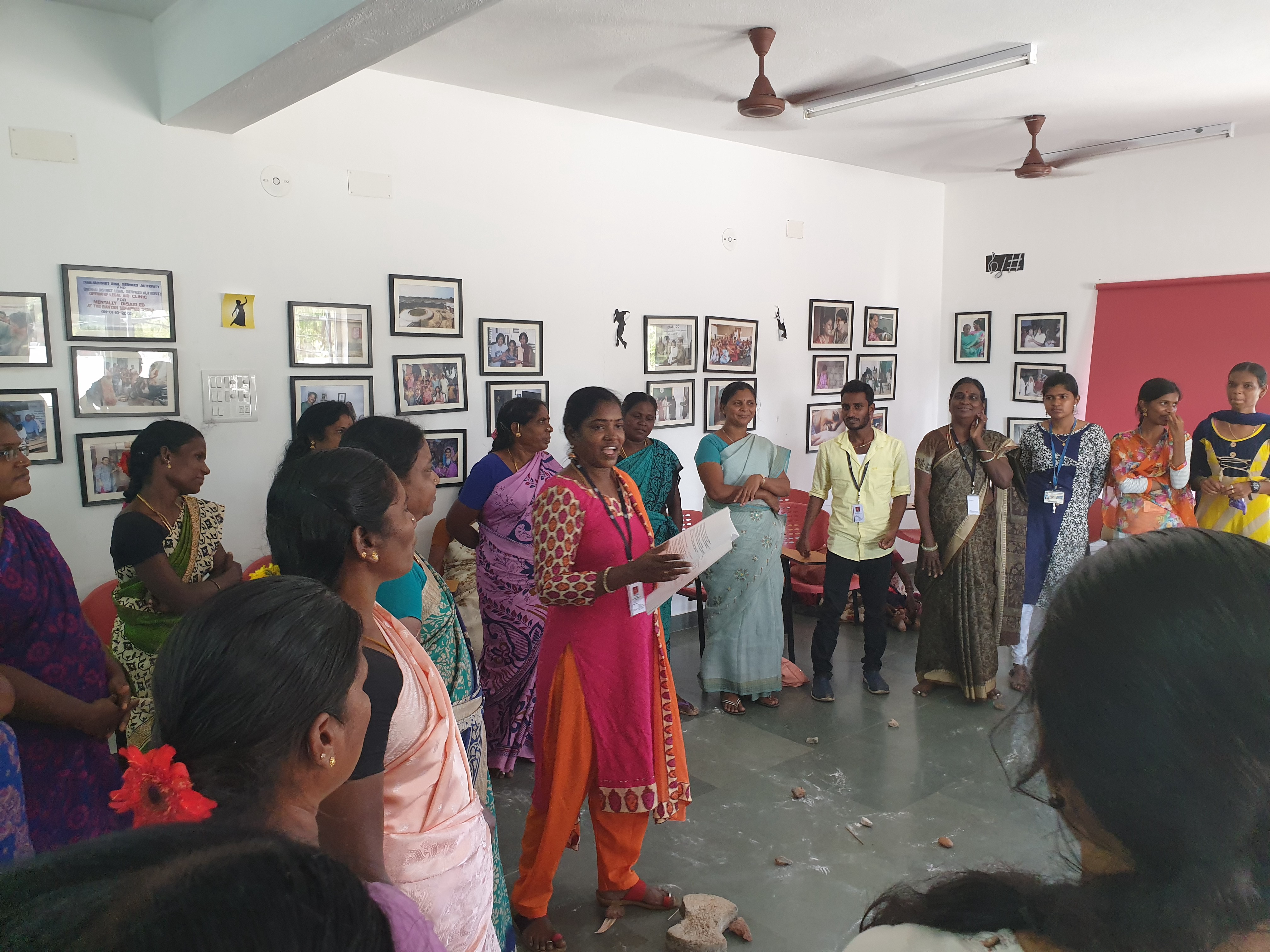
We also designed a “training of trainers” model for the project’s implementation that allows the program to grow autonomously.
Once we train volunteers through a one-day certification course to use and adapt the course material, these “master trainers” can then hold their own one-day workshops with educators, health workers, and youth advocates to equip them with the educational tools to a sanitation challenges specific to the communities they work with.
These trained educators and health workers then work with children to help them become the change agents and hygiene advocates of the future.
Creating a Network of Wonderful Partners
For the successful design and implementation of our project on the ground, it was important to create a network of partners from varied fields.
Green Gold Animation, the creators of Chhota Bheem, have been invaluable partners. The use of one of India’s most beloved cartoon characters for children aged 7–11 provides the hook our learning experience needs regardless of where the learners live. Their trust in our project and wide reach has allowed the project to reach a diverse and wide audience.
The Mary Anne Charity Trust (MACT) have also been key implementation partners. With their wide base of volunteers across Tamil Nadu and years of experience experience implementing projects for children, MACT has been instrumental in driving the project in Tamil Nadu.
And we’re still adding new partners to our roster: in the coming months, we will partner with the Directorate of Public Health and Preventative Medicine, Government of Tamil Nadu, and Unicef Tamil Nadu, to reach more schools and organizations across Tamil Nadu.
Spreading the Word
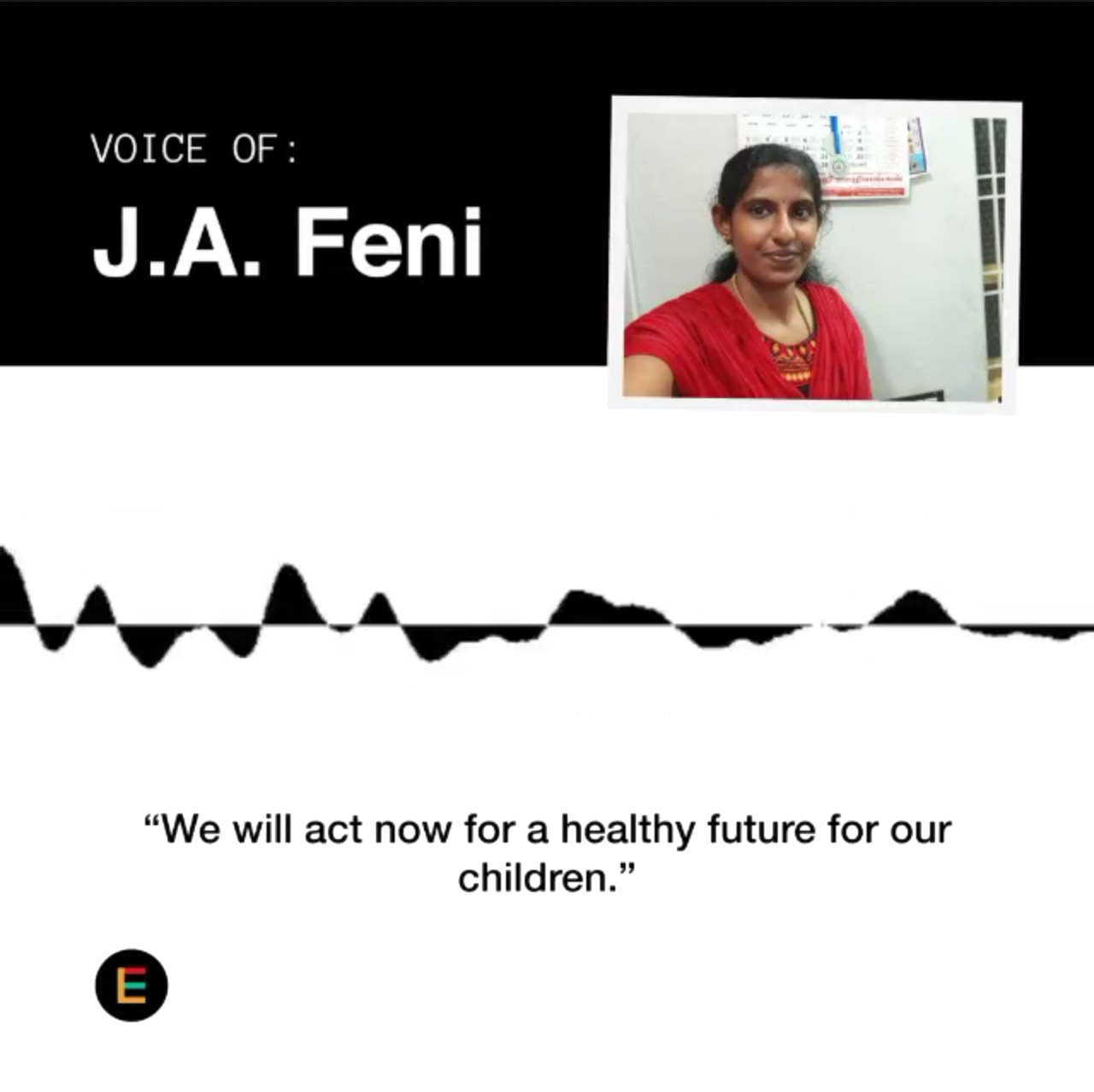
Effectively spreading the word about the learning program has also been essential to ensure the program’s sustainable growth. Especially as part of the #BeatGermsWithBheem campaign, our team has undertaken a significant outreach effort to maximally ensure the spread and adoption of Hygiene with Chhota Bheem.
From sharing case studies featuring some of our most impactful success stories about community members using the program so far, to developing new relationships with community groups and NGOs in Tamil Nadu and beyond, we’ve worked hard to create awareness and excitement about the program.

So far, we’ve found that these areas of focus have been instrumental in helping to ensure a long, sustainable life for Hygiene with Chhota Bheem in the months and years to come. It’s been amazing to see how communities have embraced this programming and made it their own, and we’re excited to see the impact it will continue to make in fostering healthy hygiene habits in communities throughout India!
Are you ready to join the Bheem Team? Help us spread the word about the project and the amazing impact it’s making all week long by sharing our content with your colleagues or on social media! We’ve compiled all our resources into one easy-to-share link.
Know about any about other health and hygiene projects that are also making a positive impact? We’d love to hear about them!
Want to bring Hygiene with Chhota Bheem to your organization or community? Let’s talk! Shoot us an email and we’ll be happy to have a conversation about the best way for your team to get involved!
To learn more about Hygiene with Chhota Bheem, you can check out the project’s new website or download the app for iOS and Android. To keep up with the latest from the Engagement Lab, subscribe to our newsletter or follow us on Twitter.